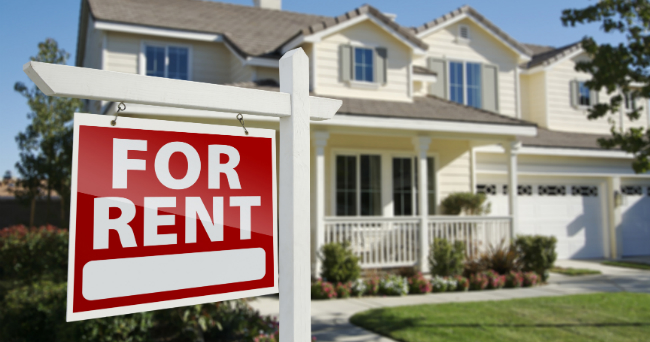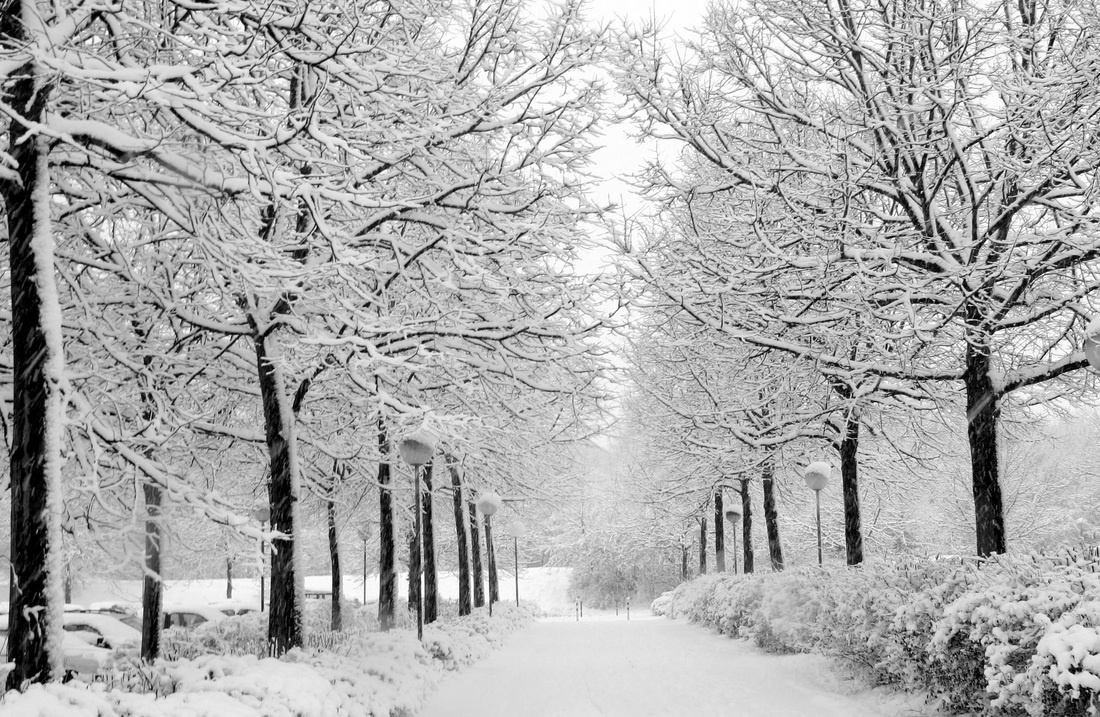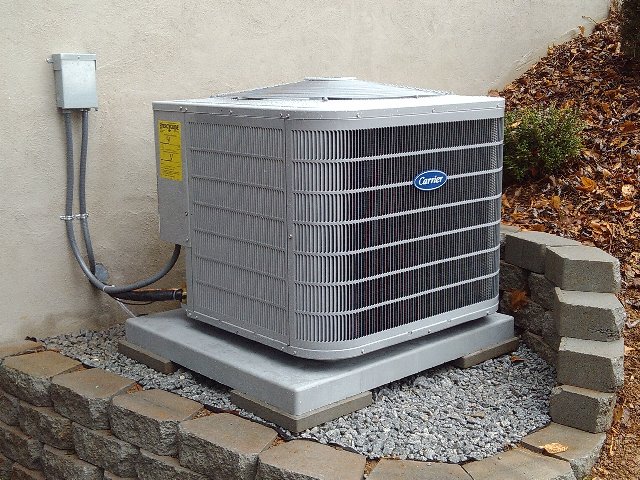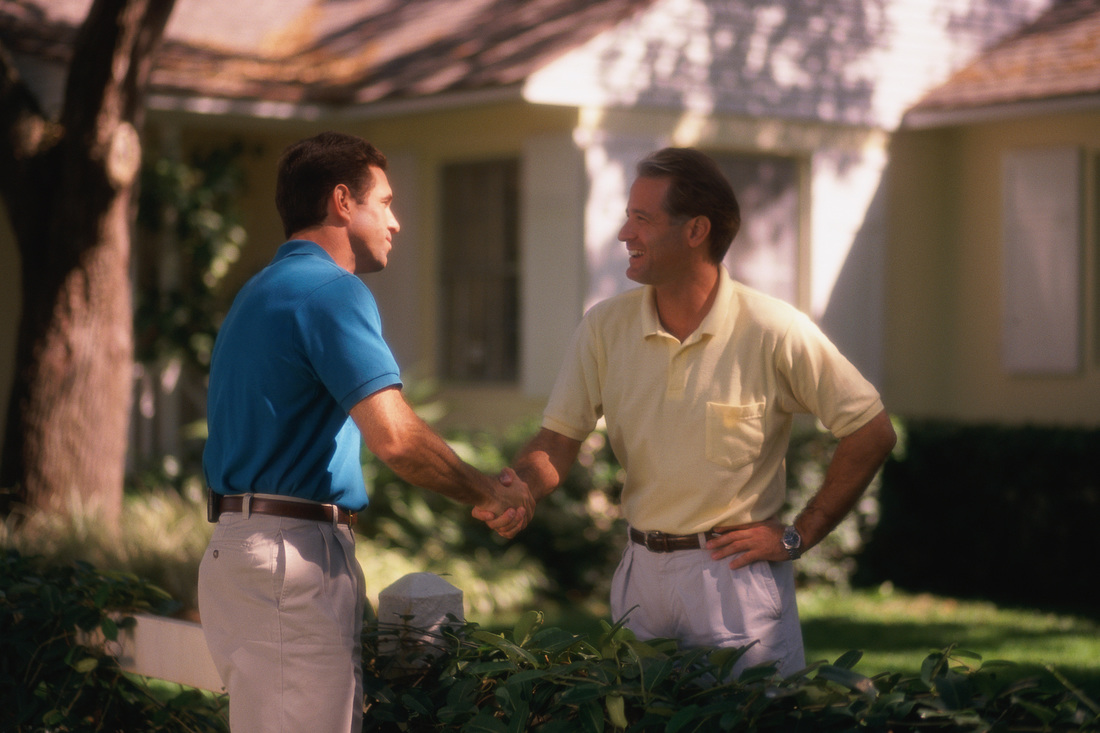|
Washing air-blocking debris off air conditioning fins is as easy as using a garden hose.
It maintains the system's efficiency and reduces energy bills. Here are a few tips for the best results. 1. If the fins are caked with fuzz from dandelions or cottonwood trees, vacuum before you rinse with water. 2. Rinse with moderate pressure. The fins are flimsy metal, which will bend under strong pressure. 3. As you spray, peer down into the unit. You should see water streaming through the fins. If not, the fins are blocked and need more rinsing. 4. Rinse off all the fins, but pay special attention to the fins just under the lid of the unit. Aim the water upward to drive out debris buildup there. According to an article published on the National Rental Home Council’s website, renters make good neighbors and assets to their community. The council’s research shows that “renters typically stay in their properties for an average of five years, resulting in stable communities and neighborhood cohesion.” Even if you don’t stay in your home for five years, you can take steps to being a good neighbor. Here are four helpful hints to make your neighbors happy:
Make a good first impression. First impressions are important, even when you’re dealing with the stress of moving. When you move into your rental home, show consideration for your neighbors by parking your moving truck out of their way. If you see any neighbors on moving day, take the time to introduce yourself. This will help you build a respectful and considerate relationship with your neighbors. Monitor the noise level. A good neighbor is a quiet neighbor. Avoid playing loud music in your home or vehicle. Inform your neighbors of any potential loud parties or events. (Also, consider inviting neighbors to your events.) And, keep your pets quiet to avoid creating disturbance in the neighborhood. Offer your help. Always make yourself available to help a neighbor in need. Offer to check your neighbor’s mail or watch their pet while they are on vacation. Help busy parents with their children by suggesting a neighborhood play date. If you are kind and generous to your neighbors, they may help you in return. Keep it clean. Remember that the outside of your home is just an important as the inside. Keep trash out of your yard, clear the papers and mail from your doorstep and take down holiday décor in a timely manner. This will keep your neighbors happy and your neighborhood looking pristine.  There is often a misconception that buying is unequivocally better than renting. Renting is viewed as wasting money and not building equity. However there may be several reasons why renting is better than buying. 1. No maintenance costs - As the owner of a home, one would be responsible for maintenance and repair of the home. Unforeseen costs can often add up. For example, replacing an HVAC system will often run in the tens of thousands of dollars. As a renter, one would not need to burden the risk of maintenance costs. 2. Transactional/frictional costs - Closing costs, broker fees and other frictional and transaction costs can become a substantial portion of the purchase price. Frictional costs can often be 10% of the purchase price when buying and selling. On a $200,000 home, that is $40,000 of fees and costs upon purchase and sale of the home. 3. Lower utility costs - You still need to pay for utilities when you rent, but chances are, your utility bills would be higher if you owned a home. First, a larger space uses more energy, so you can expect your heating and cooling costs to increase. You may also have to pay for watering your yard, upkeep of a pool or utility bills that were previously included in your rent, such as water, trash or association fees, if you live in a subdivision or condominium. 4. Real estate prices go up by 2% a year - Historically, real estate prices only appreciate by 2%, the rate of inflation. Why have your money tied up earning 2%? 5. Real estate prices can go down - As we have seen in 2008, real estate prices can decrease substantially. Many homeowners lost their homes, down payment and destroyed their credit score through foreclosures and bankruptcies due to too much debt on their homes. 6. No property taxes - You don't have to pay property taxes. Homeowners are required to pay property taxes, which can be passed by counties, cities and even school districts, so exactly how much you would pay depends on where you live. For example, the median property tax in New Jersey is $6,579 per year for a home worth $348,300, while the median property tax in Louisiana is $243 per year for a home worth $135,400, according to Tax-Rates.org. Regardless of the amount, that's an expense renters avoid completely. 7. Debt-free - You're likely to have less debt. Between student loans, credit cards and car loans, many Americans are already in debt before introducing a mortgage to the mix. In fact, Debt.org reports that more than 160 million Americans have credit cards, and on average, each household carries more than $15,000 in credit card debt. On top of that, NerdWallet reports that the average household has more than $154,000 in mortgage debt. Take a house out of the equation, and you don't have to worry about that mortgage debt. 8. Insurance - Renters insurance is less expensive than homeowners insurance.According to the Insurance Information Institute, the average annual home insurance premium ranges from about $600 in Wisconsin to nearly $2,000 in Florida. On the other hand, the institute says a renters insurance policy averages only $187 per year. 9. You have more freedom and mobility. Got a job offer in a new city? Just need a change of scenery? Renting gives you that flexibility. Americans tend to be mobile, and unless home prices are rising steeply, it usually doesn't make financial sense to sell a home a few years after buying it. As a renter, packing up and moving is a much easier process. 10. You can live in a better neighborhood. Perhaps you can't afford to own a home in your dream neighborhood -- the one with the best restaurants or the one with the best school district -- but it may be attainable if you rent. If living in a certain neighborhood suits your lifestyle, moving away just so you can afford to purchase a home may leave you feeling unsatisfied on a day-to-day basis. It could also increase your commuting costs. 11. You'll be more financially stable. While purchasing property can be an investment and home prices can appreciate, a mortgage can also dig you into a deep hole. The real estate market is unpredictable, and there are no guarantees. If you put all your savings into purchasing a home, you could be jeopardizing your long-term financial needs -- especially if you're on a tight budget to pay your mortgage.  Fall is here and all across the country the leaves are changing as temperatures dip from their muggy summer highs. For the rest of the country that doesn’t live in eternal summer it’s time to start buttoning things up to keep your old home warm this winter. I’m going to share 4 easy tips that can make a huge difference in your heating bill this winter. Check these items off your to do list before the end of October and they’ll pay for themselves. Tip #1 Rope CaulkHow many of you open your windows in the dead of winter? I didn’t think so. If you don’t have any storm windows installed now would be the time to get them ordered and installed before the super cold months hit. I love my old windows more than most folks and in the winter months when they won’t be used you should consider temporarily sealing them up with rope caulk. Even with storm windows rope caulk is a simple and affordable way to seal up any air gaps you might have. Rope caulk comes in rolls and you press it into place along the gap where the sash meets the trim. It air seals the window and can easily be peeled away in the spring without marking or leaving any residue. Tip #2 Fireplace Damper Hopefully, your old home’s fireplace or chimney has been upgraded with a damper. If not the time is now. A lot of older houses didn’t have a damper installed on their chimney. While this isn’t a big deal in the summer the chimney is like a super highway for hot air to escape during the winter. Without a damper hot air will run its way out of your house and cold air (which is heavier if you remember your 7th grade science) will sink down the chimney. Call a chimney sweep in to get the chimney cleaned and have them install a damper while they are there. It will likely run you anywhere from $150-$400 for a new damper. Totally worth it! Tip #3 Check the Doors While I’d love to rope caulk my doors too I have a feeling I’ll be needing them during the winter. So, now is the time to check the weatherstripping on them. If you’ve been toying with the idea of installing 100 yr. spring bronze now would be a good time. You can read more about weatherstripping doors in my post: If you’re still sticking with adhesive backed foam check that it is still working. After a couple years this kind of weatherstripping gets compressed and looses its effectiveness. Replace what’s worn out and you’ll be good for another couple seasons. Tip # 4 Tune Up the FurnaceIt’s the one thing that absolutely can’t break when it gets cold. Your furnace is often neglected since it is buried in the attic or some back room like it has been a bad, bad furnace. Bring in a pro for around $80 or do-it-yourself. Either way get the furnace tuned up and checked out to make sure it is performing at peak efficiency. Not only will you catch potential problems before they start but you will have a furnace that uses less fuel and heats your house the way it was designed to. |
Yankee HomesYankee Homes services high quality homes for rent in the Atlanta Georgia area. Archives
October 2016
Categories |



 RSS Feed
RSS Feed
